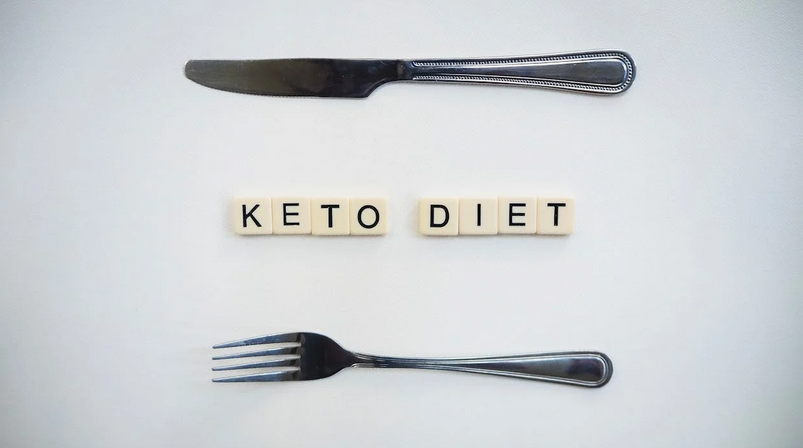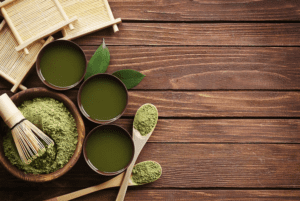The Keto diet has taken the health world by storm, and for good reason. It promises weight loss, increased energy levels, and improved mental clarity. But while many set out to embrace this low-carb lifestyle with enthusiasm, a surprising number stumble along the way. Why does this happen? Often, it boils down to a few common missteps that can derail even the most dedicated dieters. If you’re considering going keto or already on your journey but feeling frustrated, understanding these pitfalls is crucial.
Let’s examine some common mistakes people make on their keto adventure and learn how to avoid them for a smoother journey towards their health goals.
Not Eating Enough Healthy Fats

One of the biggest misconceptions about the Keto diet is that it’s all about cutting carbs. While that’s true, many forget to embrace the star of this show: healthy fats. These aren’t just add-ons; they’re essential for fueling your body. You’re missing out on vital energy sources when you skimp on good fats like avocados, olive oil, and nuts. Your body thrives on fat during ketosis, and you may feel sluggish or hungry without enough of it.
Additionally, healthy fats help keep you satisfied longer while stabilizing blood sugar levels. This can make a world of difference in curbing those pesky cravings throughout the day. Remember to incorporate a variety of fatty foods into your meals. The right mix will enhance flavour and make sticking to keto much easier and more enjoyable.
Overconsuming Protein
In the world of keto, a protein often takes centre stage. It’s easy to assume that more is better, but overdoing it can lead to unintended consequences. Excessive protein intake can kick you out of ketosis. When your body receives too much protein, it converts some of it into glucose through a process called gluconeogenesis. This can hinder fat burning and stall weight loss. Moreover, relying heavily on animal proteins may increase saturated fat consumption. Balancing your diet with healthy fats is essential for optimal energy levels and overall health.
Listen to your body’s needs rather than fixating on high-protein meals. Focus instead on incorporating moderate amounts of quality proteins while prioritizing fats from avocados, nuts, and olive oil. Taking a step back from the “more is better” mindset will help you embrace true ketogenic principles without compromising your success or well-being.
Neglecting Electrolytes and Hydration

Many people focus solely on cutting carbs when following the keto diet. However, they often overlook a vital component: electrolytes. Electrolytes such as sodium, potassium, and magnesium play crucial roles in maintaining body balance. On a low-carb diet, your body tends to flush out more water and electrolytes than usual. This can lead to feelings of fatigue or dizziness, often referred to as the “keto flu.”
Staying hydrated is equally important. Water helps transport nutrients and supports overall bodily functions. Without proper hydration, you might experience headaches or muscle cramps. Incorporating foods rich in electrolytes can make a significant difference. Consider avocados for potassium or leafy greens for magnesium. Additionally, adding salt to your meals can help maintain sodium levels without compromising your keto goals.
Hidden Carbs in Processed Foods
Processed foods often hide a surprising amount of carbohydrates. Even items marketed as “low-carb” can contain sneaky sugars and starches. Think about sauces, dressings, and snacks. They may taste delicious but are often packed with ingredients that increase their carb count without you realizing it. Reading nutrition labels becomes essential. Look for terms like maltodextrin or dextrose on the ingredient lists; these are just fancy names for sugar. Many brands use them to enhance flavor or texture while obscuring the carb count.
Even seemingly innocent foods like yogurt can have added sugars that push your daily totals higher than expected. Choosing options labelled as unsweetened or checking for hidden carbs is vital before reaching for that favourite snack. By staying vigilant and informed, you’ll be better equipped to stick to your keto goals without unwittingly sabotaging your efforts with those hidden sources of carbohydrates.
Lack of Meal Planning and Variety

Meal planning is often overlooked, yet it plays a crucial role in the success of any diet, especially keto. Without a solid plan, you risk eating repetitive meals that can quickly lead to boredom and cravings. Variety keeps your taste buds excited and ensures you get a range of nutrients. It’s easy to rely on the same few ingredients when busy or overwhelmed. However, this lack of diversity can make sticking to your goals much harder.
Experimenting with different recipes can open up new culinary possibilities. Think outside traditional boundaries by incorporating unusual low-carb vegetables or exploring unique sources of healthy fats like avocados or olives. Invest some time each week to craft a meal plan that excites you. It doesn’t have to be elaborate; even simple changes can transform your keto experience from mundane to delightful while keeping you firmly on track.







 These energy-rich macronutrients are the body’s primary source of fuel during exercise and help support optimal performance in the gym. Carbs come in two forms: simple and complex. Simple carbs, found in foods like fruits and sugary snacks, provide quick bursts of energy. On the other hand, complex carbs, such as whole grains and vegetables, take longer to digest and provide sustained energy over a longer period. Including an adequate amount of carbohydrates in your diet is crucial for muscle growth. They replenish glycogen stores in muscles after workouts, helping them recover faster and prepare for future training sessions. Moreover, carbs stimulate insulin release, which aids in protein synthesis – the process that helps build new muscle tissue.
These energy-rich macronutrients are the body’s primary source of fuel during exercise and help support optimal performance in the gym. Carbs come in two forms: simple and complex. Simple carbs, found in foods like fruits and sugary snacks, provide quick bursts of energy. On the other hand, complex carbs, such as whole grains and vegetables, take longer to digest and provide sustained energy over a longer period. Including an adequate amount of carbohydrates in your diet is crucial for muscle growth. They replenish glycogen stores in muscles after workouts, helping them recover faster and prepare for future training sessions. Moreover, carbs stimulate insulin release, which aids in protein synthesis – the process that helps build new muscle tissue.

 Did you know that your
Did you know that your 
 Herbal medicine uses plants, flowers, and other parts of trees and plants to treat various illnesses and conditions. Herbal remedies are often made into teas, tinctures, capsules, powders, or ointments. These remedies’ active ingredients are usually chemicals found in the plants themselves.
Herbal medicine uses plants, flowers, and other parts of trees and plants to treat various illnesses and conditions. Herbal remedies are often made into teas, tinctures, capsules, powders, or ointments. These remedies’ active ingredients are usually chemicals found in the plants themselves. This is a common question and one that does not have a straightforward answer. It depends on the herb, the treated condition, and the person taking it. Some herbs can be taken daily, while others should only be used when needed. Herbal medicine can be a great way to treat various ailments.
This is a common question and one that does not have a straightforward answer. It depends on the herb, the treated condition, and the person taking it. Some herbs can be taken daily, while others should only be used when needed. Herbal medicine can be a great way to treat various ailments.
 We all want to get back to our everyday lives as soon as possible after surgery. However, it is essential to give your body the time to heal correctly. Depending on the type of surgery you had, your doctor will likely give you specific instructions on how long you need to rest and recover. It is essential to follow these instructions carefully to avoid complications. It means not only getting enough sleep at night but also taking it easy during the day. If you feel tired, take a nap or just relax and let your body recuperate.
We all want to get back to our everyday lives as soon as possible after surgery. However, it is essential to give your body the time to heal correctly. Depending on the type of surgery you had, your doctor will likely give you specific instructions on how long you need to rest and recover. It is essential to follow these instructions carefully to avoid complications. It means not only getting enough sleep at night but also taking it easy during the day. If you feel tired, take a nap or just relax and let your body recuperate. Last but not least, be sure to visit the post anaesthesia care unit (PACU) before you are discharged from the hospital. The staff in the PACU will monitor your vital signs and provide any pain relief or other medications you may need. They will also give you instructions on how to care for yourself at home and answer any questions you may have. Following their instructions carefully will help ensure a smooth and speedy recovery.
Last but not least, be sure to visit the post anaesthesia care unit (PACU) before you are discharged from the hospital. The staff in the PACU will monitor your vital signs and provide any pain relief or other medications you may need. They will also give you instructions on how to care for yourself at home and answer any questions you may have. Following their instructions carefully will help ensure a smooth and speedy recovery.



